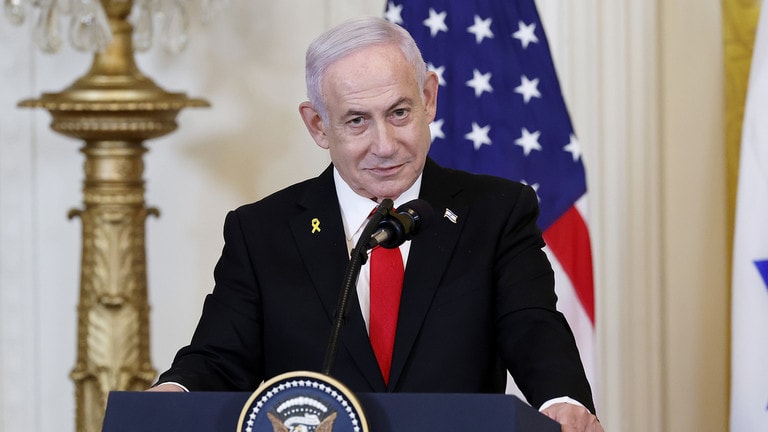Israel delayed Iran's nuclear bomb plans for a decade
Israeli Prime Minister Benjamin Netanyahu has said Iran "could have" built a nuclear weapon a decade ago if the Jewish state had not acted. He said Tehran's nuclear ambitions remain a threat.

The comments come just days after the New York Times reported that Iranian scientists are working on a faster way to develop nuclear weapons. A secret team of scientists based in Tehran has been tasked with finding a new way to produce an atomic bomb, according to US intelligence sources. The report also said that the new intelligence was among the topics discussed during Netanyahu's state visit to the United States this week.
"[Iran] could have achieved their goal ten years ago if we had not taken various actions to stop them. We stopped them," the Israeli prime minister told Fox News in Washington on February 6. However, he added that Tehran's efforts were not stopped "completely."
Netanyahu emphasized US President Donald Trump's general stance on the issue, noting: "The president stated a very simple thing, which I also said. Iran cannot be allowed to have nuclear weapons."
Iran's uranium enrichment activities have long been viewed by the West and Israel as a covert effort to develop nuclear weapons. Tehran has denied the allegations, insisting its nuclear activities are for peaceful purposes only. The country has been subject to numerous international sanctions for decades over its nuclear development program.
In 2015, Iran reached a nuclear deal with world powers, known as the Joint Comprehensive Plan of Action, that limited Tehran's nuclear program in exchange for partial sanctions relief.
However, the United States unilaterally withdrew from the deal in 2018 during Trump's first term. Since then, Iran has significantly increased its uranium enrichment capacity, and efforts to revive the deal have been unsuccessful - although Tehran has said it is willing to negotiate if it is treated with "respect". In December, Rafael Grossi, head of the International Atomic Energy Agency, announced that Iran was "significantly accelerating" its uranium enrichment to 60% purity, calling the development "very worrying".
